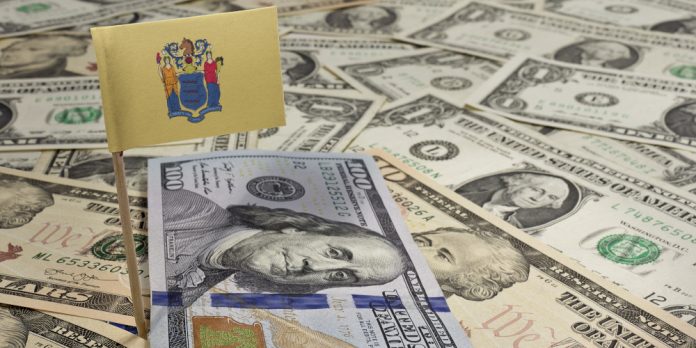New Jersey’s online and retail sportsbooks quickened their record-setting pace in November, becoming the first state to produce more than $100m in revenue in a single month off of nearly $1.3bn in wagering.
The third consecutive month of jaw-dropping results by both sports betting and online gaming pushed the state past even more milestones, including a lifetime sports betting handle of more than $20bn, according to PlayNJ, which tracks gaming developments in the state.
In total, New Jersey’s online and retail sportsbooks handled $1.26bn in wagers in November, the third consecutive month with wagering over $1bn. Betting volume was up 35.2% from the $931.6m generated in November 2020. But November’s handle fell just short of October’s $1.3bn record, a product of one less day in the month and one less weekend of football.
“The key to New Jersey’s consistency and its advantage over most every other market is its ability to draw interest on such a wide variety of sports,” said David Danzis, an analyst for PlayNJ.com. “We’ve seen over the last three years that when football and basketball converge, as they did in November, it produces a groundswell of bettor interest for sportsbooks.”
Sportsbooks won a remarkable $114.8m of November’s bets, though. That shattered the previous record — for the state and for the U.S. — of $84.2m that was set in October. Year-over-year, revenue was up 127.1% from $50.6m in November 2020. In all, that revenue generated $17.3m in state and local taxes.
New Jersey sportsbooks have now taken in $20.9bn in wagers, which has yielded $1.55bn in revenue, since the market first opened in June 2018. New Jersey is the only state to cross $20bn in wagers and $1.5bn in revenue over that time.
“New Jersey helped open the floodgates to legal sports betting in the US when it launched in 2018, and no state has done it better,” said Eric Ramsey, an analyst for the PlayUSA.com Network, which includes PlayNJ.com. “The Garden State remains the most lucrative market in the country, more than delivering on its early promise.”
In the last three months, New Jersey sportsbooks have generated a whopping $3.6bn in wagers and $281.4m in operator revenue. With a comparably strong December, operators will have produced more handle and revenue over four months than in all of 2019, when they recorded $299.4m in revenue on $4.6bn in wagers.
Football is a key reason for the boom in action over the last three months, but a full month of the NBA and the start of college basketball is a bigger boon for New Jersey sportsbooks than most anywhere else in the US.
With one less weekend of games, football betting slowed to $401.3m in November from $499m in October. Meanwhile, basketball spurred $399.7m in betting, up from $159.6m in October.
For the year, basketball has attracted $2.3bn in bets, the most of any sport. Football is second with $1.6bn in wagers this year.
Online sportsbooks accounted for $1.1bn in wagers, or 90.9% of the state’s handle in November. FanDuel/PointsBet/SuperBook continued their dominance of the online market with $59m in gross revenue, up from $39.6m in October.
Meanwhile, retail sportsbooks generated $114m in November handle, down from the record $124.2m in wagers in October. Meadowlands/FanDuel led the retail market with $5.4m in revenue.
New Jersey’s online casinos kept up a blistering pace with $118m in gaming and poker revenue, but fell short of the record $127m generated in October. November’s revenue was up 28.5% from $91.8m in November 2020.
The pace slowed to $3.9m in revenue per day over the 30 days of November from $4.1m per day in October. But revenue was up from $3.1m per day in November 2020. Online casinos and poker rooms have now produced $1.2bn in revenue for the year.
“Online casinos and online sportsbooks have created a rising tide that continues to benefit both,” Danzis said. “The question ahead is how much more can online casinos grow? I don’t think they have reached their collective ceiling yet, but the growth in 2022 will most likely taper off somewhat compared with what we’ve seen over the last two years.”














